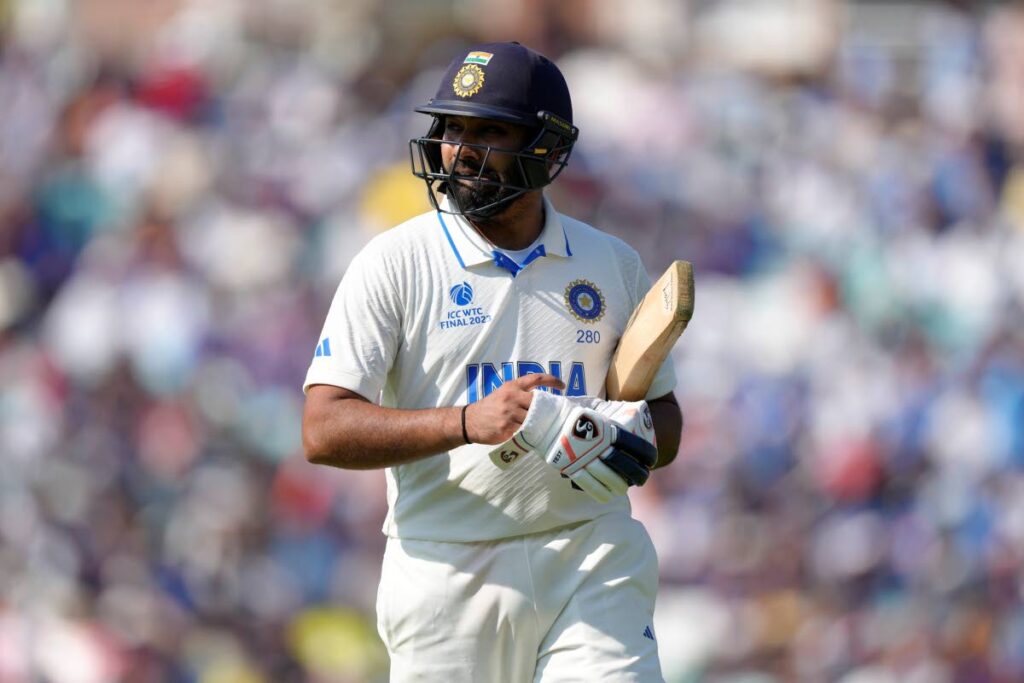Excuses, complaints from India's captain

It is a pity when some international cricketers do not contain their emotions and publicly announce their disgust with any decision that, in their opinion, is not the right one, because it was close and went against them.
It is immature and sets a bad example, not only for those on one’s team but also for the number of young aspiring cricketers who are looking up to their international heroes. It is even worse when the captain of the team is the guilty party. He ought to be the one to demonstrate the right example.
My question to all those spoilsports is: do you believe that your antics would make any difference to the umpire, in order to make him change his decision?
In all sports there must be a referee (contact sports) and umpires (non-contact sports). Without these essential personnel, the game being played would be a farce. This is true whether the contest is an international game or one played for fun.
Over the years in international cricket, there were only home umpires; this was changed gradually in the mid-nineties, when an international game would have one home umpire and one non-aligned. Eventually, this gave way to both umpires being from different countries from the participating teams. This helped to improve the bickering and the complaints.
Of course, it is not a perfect world and present-day officials can make mistakes.
The first lesson I learnt from the authority figures in my early cricketing years was that decisions by umpires on the field must be accepted, without any show of disgust or annoyance. It is not an easy task.
A lesson I learnt from the great fast bowler Freddie Trueman always stayed with me. January 1960. I was 19 years old and playing for TT against the Marylebone Cricket Club, the name that England used on tour in their first-class games, at Queen’s Park Oval. Trueman was on the English team. I was given run out in the final over of the first day’s play, after opening the batting and still at the crease for the last over. It was a bad decision. I froze in shock.

While walking off the field to the pavilion, Trueman put his arm around my shoulder and said to me, “You are very young, son, so bear in mind that in the future, there would be other unfair decisions. However, always remember, it’s all part of the game, as umpires make mistakes too – just like batsmen and bowlers; yet sometimes things will go your way. Don’t let it get you down.”
Although not word for word (which would be difficult to recall after 63 years), that is the gist of his advice, which I carried with me throughout my career.
The utterances of India’s captain Rohit Sharma, in the Test Championship match played at the Kia Oval, London, from June 7-11, were in bad taste.
This game was against Australia. The two leaders on the points table, after two years' earnings of Test cricket points, qualified to meet in the final in England, a date established two years before.
Sharma objected to a catch taken by Cameron Green in the slip cordon. He dived to his left and caught the ball in his left hand off the outside edge of Shubman Gill’s bat. Green was still off-balance and landed on his left hand. The catch had the on-field umpires in doubt: hence they referred it to the TV umpire, Richard Kettleborough of England. His decision was out, after replaying the film from numerous angles a number of times.
When Green took the catch I thought he was out, but after the replays on the TV, I was of the opinion he was not out. The ball was touching the ground and stuck between two of his fingers.
A couple of Aussie former Test cricketers thought Green was in control of the catch when he hit the ground, but he couldn’t have been, or he would not have fallen.
Sharma was the not-out batsman at the other end and protested to the umpires.
After the game, he gave his views on another matter: the final should not be played in England.
Yet he made no mention of why he left out Ravichandran Ashwin, the best off-break bowler in the world, and for what reason he chose to send Australia to bat when he won the toss.
The better side won. No excuses, please!


Comments
"Excuses, complaints from India’s captain"